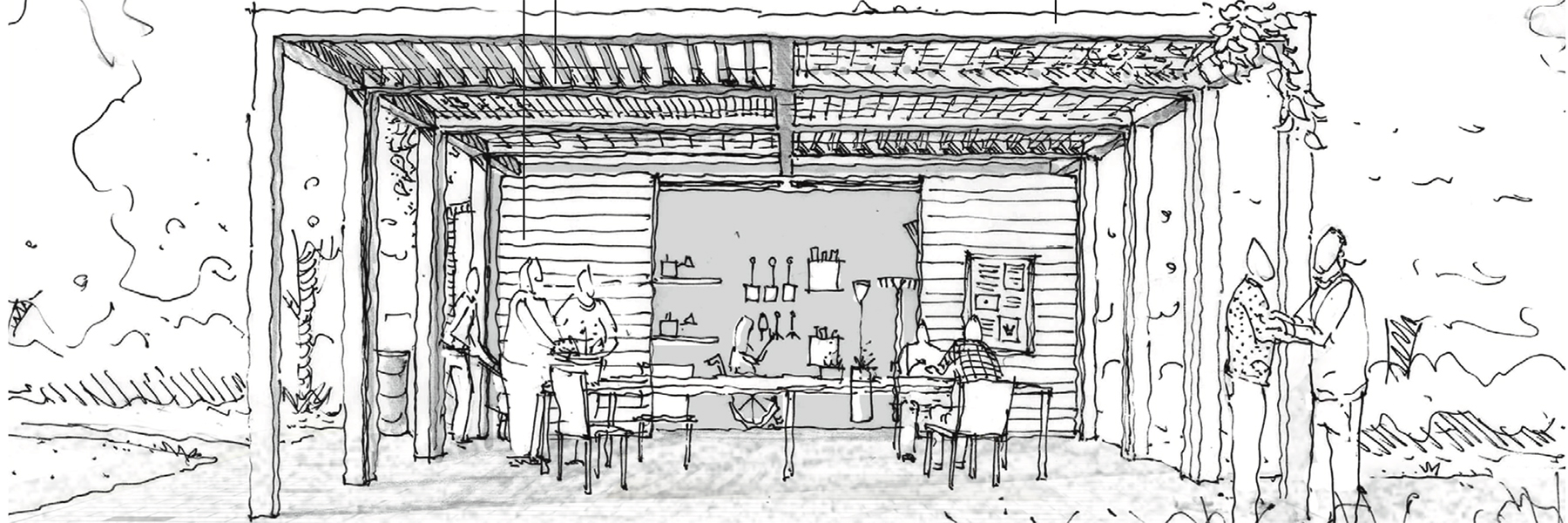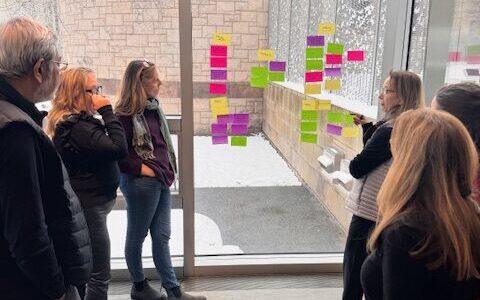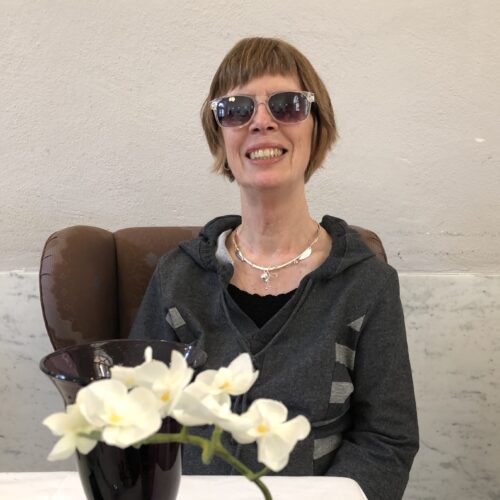
Our
People
COG is a largely volunteer-run organization supported by our dedicated Board, interns, collaborators, and designers. Together, we are driven by the shared belief that connecting communities to thoughtfully designed outdoor spaces enriches lives, strengthens neighborhoods, and fosters lasting ecological and social well-being.
Board of Directors
Staci Jasin, Executive Director
Staci believes in the power of place to transform lives and improve individual and planetary health. A curious and solutions-driven, trans-disciplinary thinker, her career has focused on leading organizations and teams to integrate design, place-based education, and regenerative strategies to center community voices and sustained programming. When not supporting others to realize their visions of well-being, she restores herself outdoors—paddleboarding, gardening with her two kids, and exploring urban and natural landscapes. She often dreams of the expansive desert vistas of her childhood home in the Southwest.
Benjamin Weitz, Qualitative Research and Storytelling Intern
Ben is pursuing a master’s degree at Harvard Chan School of Public Health, studying environmental health with a focus on environmental justice. At COGdesign, he documents narratives across project sites, collaborating with design teams through interviews, qualitative analysis, and photography to capture the lasting impacts of COG’s work. Holding bachelor’s degrees in mathematics and public health, Ben is passionate about addressing the health effects of climate change and its disproportionate impact on underserved communities.

Hadley Berkowitz, Board Chair
Hadley Berkowitz is a certified landscape designer and passionate advocate for ecological sustainability. Before joining the Board of COGdesign, she volunteered her expertise on two COG projects, the Magnolia Street Garden and the Fenway Victory Gardens. She attended Mount Holyoke College, Northeastern University and the Landscape Institute at the Boston Architectural College. Hadley is committed to improving access to green spaces and using her platform as a designer to promote the use of native plants in public and private landscapes. Hadley enjoys exploring Boston’s green spaces including Boston’s Arnold Arboretum, where she spent two semesters studying horticulture as a student at the BAC.
Christine Tullius, Vice Chair
Christine Tullius, Certified Landscape Designer, was part of the design team for the Magnolia Community Garden, a 2018 COG project. Impressed by the involvement of community members and COGdesign to create usable green space in an undeveloped lot, she was compelled to join the COG board. Christine attended Northeastern University, and the Landscape Institute at the Boston Architectural College. Her design studio focuses on residential landscapes in Greater Boston, with an emphasis on water conservation, biodiversity and native plants. Christine finds rejuvenation in nature and you’ll often find her exploring plants or walking with her family at Fresh Pond Reservoir.
Alexandra Schweitzer, Clerk
Alexandra Schweitzer is an Executive Fellow at the Harvard Business School Social Enterprise Initiative where she writes about the drivers of success in health and social care integration for individuals, programs, and systems. She specializes in leading transformative new ventures from strategy through successful execution, primarily in health care organizations. She has extensive non-profit board leadership experience. Alexandra has a Master’s in Public Policy from the Harvard Kennedy School, a B.A. in English and American Literature from Brandeis University, and an executive MBA from Columbia University. Her favorite green space is the Arnold Arboretum.
Roberta Gianfortoni
Roberta brings extensive experience in higher education to COGdesign. At the Harvard School of Public Health, she served over 25 years as Assistant Dean for Professional Education and Director for Professional Education. She oversaw the Master of Public Health Program, co-developed the Summer Session for Public Health, and created a Professional Communication Seminar for international students. Skilled in strategic planning, program development, and administration, Roberta holds a master’s degree in anthropology and has a teaching background. Roberta is passionate about the connection between nature and community health and offers invaluable expertise in public health.
Chandu Krishnan
Chandu has work experience in sustainable development and anti-corruption in international non-profit organizations. He is presently a Senior Fellow at the Fletcher School of Law and Diplomacy. He was also a Fellow at the Safra Center for Ethics at Harvard University and the Ash Center for Democratic Governance and Innovation at Harvard Kennedy School. He was Executive Director of the non-profit Transparency International UK, and served in various roles at the intergovernmental Commonwealth Secretariat UK, including as Deputy Director for Strategic Planning. Chandu is Vice-Chair of the Town of Sharon Diversity, Equity and Inclusion Committee and a member of the Board of the Bay State Learning Center in Dedham.
Chandu’s favorite green space is the Rutland/Washington Community Garden in Boston’s South End.
Laura Sauter
Laura Sauter is a brand strategist, designer, educator, and speaker with expertise in branding for the architecture, landscape architecture, and interior design industries. Specializing in strategic brand positioning, naming, corporate identity, and environmental branding, Laura excels at crafting cohesive and compelling identities that resonate with audiences and integrate seamlessly into the built environment. Laura brings her passion for placemaking and community-centered design to support COG’s mission of expanding equitable access to green and open spaces. She looks forward to leveraging her expertise to amplify COG’s impact and help create meaningful connections between people and the landscapes they share.
Makenzie Wenninghoff
Makenzie Wenninghoff is currently a Community Planner for FEMA Region 1 and is pursuing a master’s in urban planning at Harvard University’s Graduate School of Design, with a focus on climate, the environment, and health. She has over five years of experience in the disaster recovery nonprofit sector, working with communities impacted by Hurricane Maria in Puerto Rico and Hurricane Michael in Florida. Her background in hazard mitigation and disaster recovery has emphasized the importance of green spaces and community-centered design in fostering resilient neighborhoods. Although new to Boston, she enjoys exploring the Arnold Arboretum, her favorite greenspace in the area.
Our
Legacy
COG is a largely volunteer-run organization. We have relied on our active Board, interns, designers, community partnerships, and very small staff to meet our mission. Everyone at COG is connected by our passion for the outdoors and unrelenting belief that time in nature is good for people and the planet.
COGdesign was founded in 1997 by Rosalie Johnson and led by Founding Executive Director Lucia Droby. They grounded COG in the importance of listening deeply as designers and shaped our innovative approach, reminding us that impactful design begins with genuine collaboration. COG is grateful for their visionary leadership, which laid the foundation for over 150 community-informed projects that continue to expand access to green spaces.
